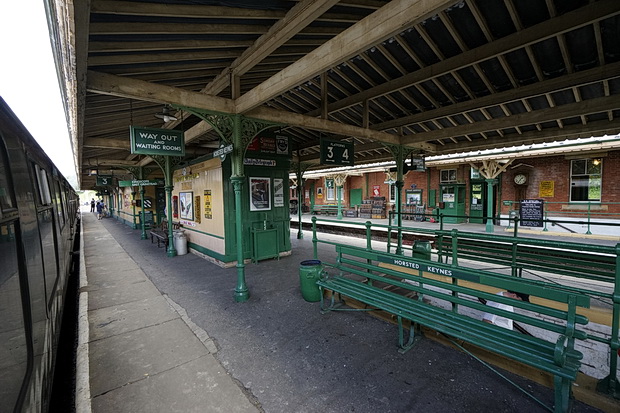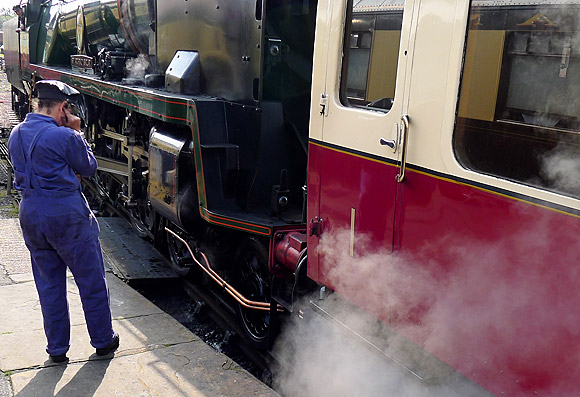
It’s been some time since I took a trip along the Bluebell Railway, and this time I got the opportunity to ride the long awaited extension from their new East Grinstead terminus station.
The Bluebell Railway runs for 11 miles (17.7 km) along the border between East and West Sussex, and became the first preserved standard gauge steam-operated passenger railway in the world to operate a public service when it opened on 7 August 1960.
The new East Grinstead terminus station opened on 23 March 2013, finally giving the the Bluebell Railway a connection to the national network after 50 years.
Steam trains now operate a daily service between Sheffield Park and East Grinstead, with intermediate stations at Horsted Keynes & Kingscote. The railway is managed and run largely by volunteers.
Having preserved a number of steam locomotives before steam services had ended on the British mainline railways in 1968, the railway possesses over 30 steam locomotives – the largest collection in the UK after the National Railway Museum in York.
Above can be seen Kingscote station, the first stop after East Grinstead.
Built in 1882 by the London Brighton and South Coast Railway, the Bluebell Railway has restored this station to the British Railways period – mid 1950s.
The station was known as being one of the quietest stations on the Brighton network, only serving a few local houses with the closest village of Turners Hill about three miles away.
The Bluebell Railway has an immense collection of almost 150 preserved carriages and wagons, most of them pre-1939.
Entering the 731 yard (668m) Sharpthorne Tunnel, the longest train tunnel on a UK preserved line.
The once-substantial West Hoathly station used to be situated close to the tunnel entrance.
Speeding through the tunnel.
0-6-0 BR diesel shunter outside Horsted Keynes station.
Restored to the Southern Railway period of the mid 1920s, Horsted Keynes is packed full of period detail and has appeared in countless films and TV dramas (most recently as “Downton” in the popular Downton Abbey series).
It was originally a junction station with a line branching off to Haywards Heath via Ardingly.
Signal box and semaphore signals.
Sleeping car waiting attention.
Arriving at the southern terminus at Sheffield Park.
The locomotive ‘runs around’ the train ready for the return trip.
Built in 1882 by the London Brighton and South Coast Railway, the Bluebell Railway has restored Sheffield Park in the style of the Brighton era in the 1880s.
The Railway explains the name:
The station was really built to serve Lord Sheffield who owned the large house and estate about a mile away. Lord Sheffield was a great supporter of Cricket and the “Sheffield Shield” is still played for today in Australia.
There’s an interesting collection of locomotives and carriages stationed at Sheffield Park.
Ticket office at Sheffield Park.
Preparing for the trip back to East Grinstead.
Platelayers’ hut.
Returning to Horsted Keynes.
Railway cottages.
Past Kingscote.
Arriving at East Grinstead.
More photos here: Bluebell Railway photo feature.
The Bluebell Railway, Sheffield Park Station, East Sussex, TN22 3QL
What’s on – How to get there.


